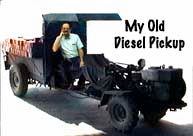D
Dennis Sorensen
Guest
When I bought my last set of tires from Costco, they used nitrogen to inflate them. The service manager told me that because nitrogen was an inert gas the tires would not heat up or lose pressure like a tire filled with air. Anyone out there confirm or refute these claims?
All sorts of claims on nitrogen but I think it may retain pressure better because of the larger size of the molecules compared to air...
A tire will not heat excessively unless the pressure is too low or the load excessive... it is the excessive flexing of the tire that causes heat buildup.


